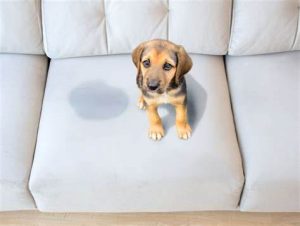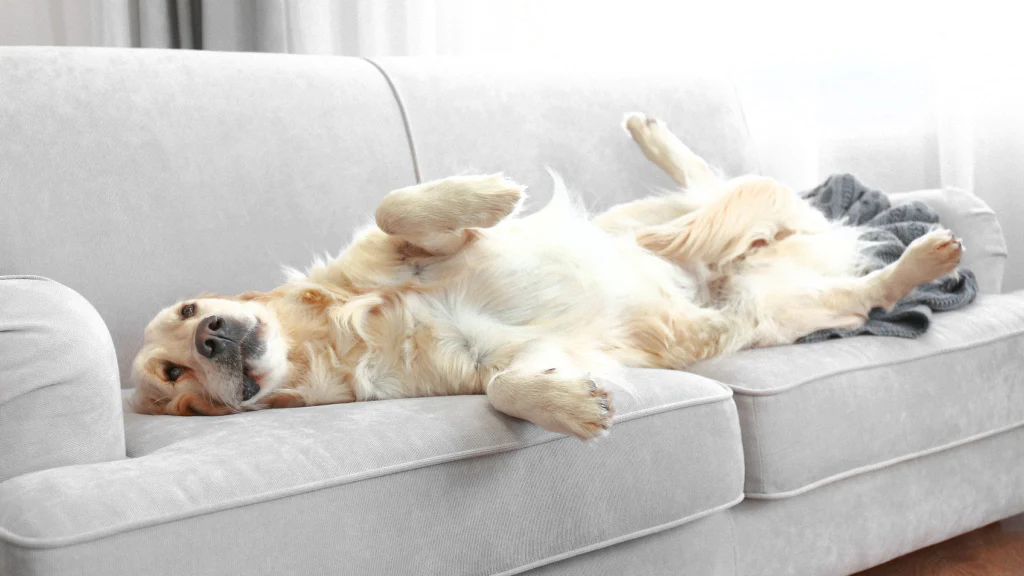It can be extremely frustrating to find your dog has urinated on furniture in your home. But it’s important to understand the potential motivations behind this behavior rather than just punish them after the fact. Getting to the root cause of the peeing problem is key to correcting it for good.

Common Reasons Dogs Pee on Furniture
- Medical Issues – Various medical conditions can cause increased urination and accidents. These include urinary tract infections, bladder stones, diabetes or kidney disease. A vet exam can diagnose medical problems.
- Incontinence – Some dogs, especially seniors, become incontinent as muscles weaken. They cannot hold their bladder as effectively. Medications or diapers can help manage incontinence.
- Submissive Urination – Dogs who lack confidence may pee when excited or feeling threatened. Greeting them calmly can help reduce submissive peeing.
- Marking Territory – Urine marking on beds and couches is a sign of dominance in unfettered male dogs. Neutering typically stops this territorial marking urge.
- Stress – High anxiety, fear, or excitement can trigger urination in moments of emotional stress. Medication may be needed for severe separation anxiety.
- Lack of House Training – Puppies or untrained dogs may not understand couches and beds are inappropriate elimination spots. Consistent training helps.
- Change in Routine – Travel, visitors, new furniture, or schedule disruptions can confuse a dog and lead to indoor peeing mistakes. Stick to routines when possible.
- Attention-Seeking – Some dogs learn that peeing gets a dramatic reaction from owners. To them, even punishment is rewarding. Ignoring the act can help.
- Age-Related Decline – Senior dogs may have a harder time holding urine due to weaker bladder muscles or cognitive decline. Use washable covers on dog beds.

Tips for Stopping Couch and Bed Peeing
If your dog is urinating on furniture, try these positive techniques:
- Restrict access – Use baby gates or crate training to limit access to problem areas when unattended. This removes opportunity.
- Seek veterinary advice – Have your vet rule out underlying medical issues like UTIs which could be causing the accidents.
- Stick to a schedule – Take your dog outside for regular, frequent potty breaks to reinforce good elimination habits.
- Clean thoroughly – Use enzyme-based cleaners to eliminate urine odors that can attract repeat peeing.
- Provide potty pads – For incontinent dogs, provide pee pads on washable bed covers to contain future accidents.
- Use repellents – Deterrent sprays applied to furniture make it unappealing for dogs to urinate there.
- Reward going outside – Praise and treat your dog for peeing in appropriate outdoor spots instead.
- Remain calm – If greeting excitable submissive urinates, ignore them until they are calm before approaching.
- Seek professional help – For severe cases, consult a certified dog trainer or behaviorist for customized modification therapy.
With consistency and by addressing underlying causes, furniture peeing issues can be resolved or managed. Never punish after the fact, as this is counterproductive. Patience and veterinary guidance are key.
